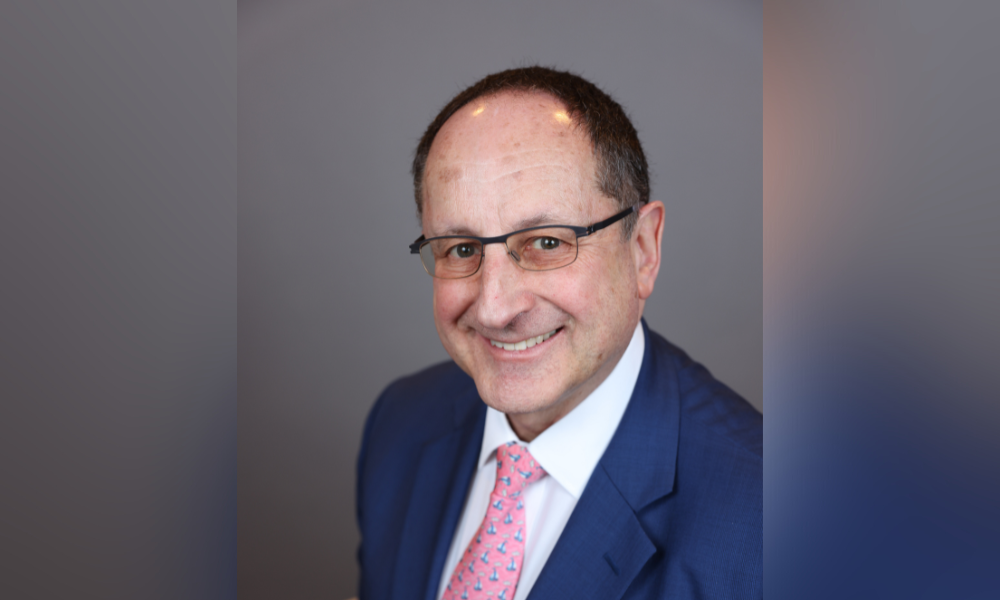
Program is vital for immigration lawyers already competing with consultants and paralegals: Karas

Immigration specialist and founder of Karas Immigration Law Professional Corp, Sergio Karas, says the Law Society of Ontario’s decision to terminate the certified specialist (CS) program is unfair, ill-advised, and significantly impacts immigration lawyers.
The Canadian Bar Association immigration members and the Canadian Immigration Lawyers Association have been blindsided by the LSO suddenly terminating the program, Karas says.
“People who have been practising in an area of law for many years and have earned the designation of certified specialists are pretty upset that the law society has taken away something that we earned with a stroke of a pen.”
Law Times previously reported that the Law Society of Ontario voted on May Convocation to discontinue the certified specialist designation effective Jan. 1, 2023. However, the program will continue for Indigenous legal issues to recognize the designation’s critical role in the LSO’s Indigenous framework and commitments to reconciliation.
Chair of the LSO competency task force Sidney Troister said the task force did not think the certified specialist program met the principles of an effective, ongoing competence regime. He says this is because there is no continuing obligation to maintain the skills required to remain a certified specialist and no constant supervision or review of qualifications.
Troister also noted that the program has a minimal intake, with only two percent of licensed lawyers taking part.
Karas says the CS program was never intended to be a mass certification for all lawyers, and not every lawyer can be certified because many do not meet the criteria. For example, lawyers working in multiple areas of law or general practice cannot become certified because they would not meet the threshold.
“They’re contradicting themselves by saying that there is minimum intake because that was never the intent of a certified specialist program. It was not that every lawyer should be certified. It was for lawyers who have achieved certain milestones in their practice, have demonstrated experience in high skill, and contribute to the legal profession by sharing that knowledge with others or distinguishing themselves from the rest of the pot.”
Karas says the task force is incorrect regarding the maintenance of qualifications because certified specialists are obligated to send an annual report indicating the activities they pursued in the past year to continue maintaining their certification.
Before the LSO required a certain number of continuing professional development hours annually, he says only certified specialists were required to demonstrate continuing professional development.
“I presented copies of speaking engagements and international conferences, brochures in which I appeared, and articles from the media where I was quoted on immigration cases.”
Karas says certified specialists are still mandated to show professional development at a higher level than the minimum requirements for the CPD.
“They wish to make sure that there is only one standard for everyone. But that’s ridiculous. We are certified specialists because we put in the work and effort.”
Karas, who has been certified since 2006, says the program is critical for immigration lawyers who are in constant battles with immigration consultants and paralegals entering legal areas that were previously the exclusive domain of lawyers.
Karas says consultants do the work of immigration lawyers without being lawyers, except in court proceedings. “That relationship has been a very contentious and unhappy one because it has been aggravated since the law society permitted paralegals to enter the field of immigration.”
The elimination of the CS program deprives immigration lawyers “of a valuable weapon in the war” against the unauthorized practice of law. Revoking the CS designation diminishes legitimacy when educating clients on the differences between lawyers and consultants, Karas says.
“It’s one thing to say, ‘we’re going to terminate the program, and from this point forward, we’re not going to do anything,’ but to take it away from people who have been designated for years is unfair.”
Karas says the CS designation was an indication that a lawyer’s practice was almost exclusively dedicated to one field of law and comforted the public. He says withdrawing the title diminishes the work and the reputation of designated lawyers and deprives people of a valuable tool when selecting counsel.
“Overseas clients who gravitate towards consultants will no longer be able to identify those of us with many years of experience and separate and value our advice over the outlandish promises they hear from consultants and their unlicensed agents.”
Certified specialists earn the designation by applying after practising for a minimum of 10 years and satisfying all the LSO’s criteria. After thorough vetting, Karas says lawyers who received the CS designation stood out from the rest.
The withdrawal of the program negatively impacts a designated lawyer’s practice and lifetime achievements, he says.
“At the very least, we should be grandfathered by the LSO. This [decision] is like a university where you earned a degree sending you a letter advising you that your degree is now null and void,” he says. “We earned this designation. It was not given to us automatically, by the passage of time, or by some politician with whom we may have connections.”
Karas says the elimination of the CS program also impacts young lawyers who aspired to receive the designation and removes an incentive to do more for their professional standards.
“The LSO is making a huge mistake by depriving young lawyers of the opportunity to aspire to join a larger pool of lawyers who have demonstrated expertise in their career.”